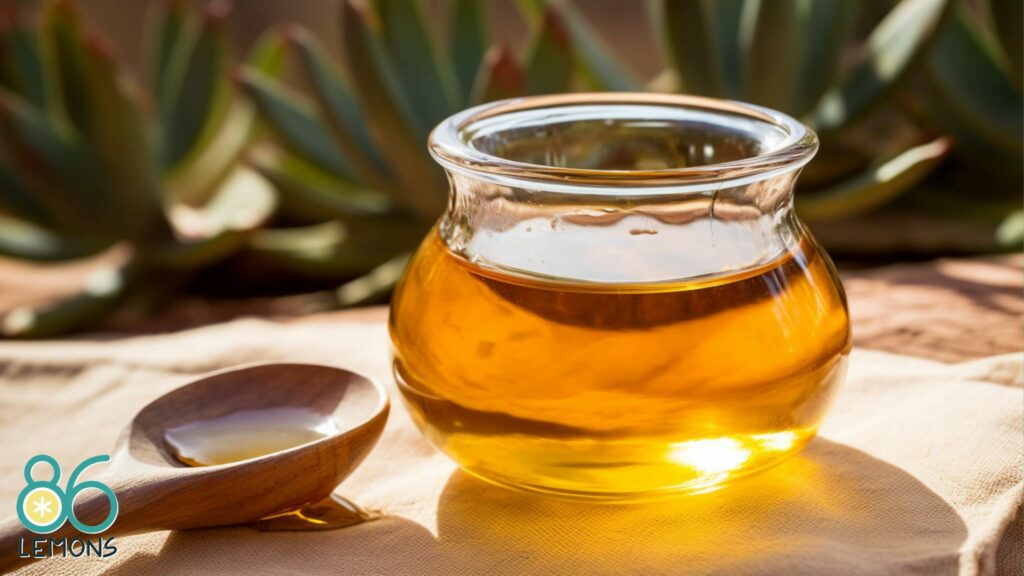Exploring the world of sweeteners without the use of animal products has led to a fascinating array of vegan substitutes for honey. Your journey to finding the perfect plant-based sweetener to stir into tea, drizzle on pancakes, or sweeten baked goods can be as rewarding as it is delicious.
As you delve into the realm of vegan honey substitutes, you’ll discover ingredients like maple syrup, agave nectar, and date syrup, each presenting unique flavors and consistencies that can enhance various dishes and desserts.
This exciting exploration can also contribute to a more sustainable and bee-friendly planet. By choosing plant-based sweeteners, you are making a positive impact on the environment, which is a sweet reward in itself.
Key Takeaways
- Vegan substitutes for honey provide diverse flavor profiles and textures for culinary creativity.
- These plant-based sweeteners align with vegan ethics and contribute to environmental sustainability.
- Selecting vegan honey alternatives is a delicious way to support bee populations and ecosystems.
Vegan Substitutes for Honey
Discover the sweetness of plant-based living with these vegan honey alternatives! Each substitute brings its own distinctive flavor and texture to the table.
Maple Syrup
Maple syrup is a fantastic honey alternative that you can use in a myriad of dishes. Harvested from the sap of maple trees, this sweetener is not only delicious but also provides a lower glycemic index compared to traditional honey, which means a less dramatic impact on your blood sugar levels. Try it in baking or drizzle over your morning pancakes!
Agave Nectar
Meet Agave nectar, a syrup that comes from the agave plant. What’s exciting about agave is its versatility—it’s a liquid sweetener that’s slightly thinner than honey and has a higher concentration of fructose. It’s particularly excellent for cold beverages as it dissolves quickly.
Barley Malt Syrup
Step up your sweetness game with barley malt syrup, a rich, molasses-like syrup made from sprouted barley. It carries a malted flavor that is perfect for giving a subtle, earthy sweetness to your recipes. Its complex sugars break down slower, making it a valuable sweetener with a moderate impact on your glycemic levels.
Brown Rice Syrup
Last but not least, explore Brown rice syrup; it’s thick, it’s gooey, and it resembles honey in texture but with a buttery twist. This nectar-like alternative is produced by breaking down brown rice’s starches into simpler sugars, yielding a delicious syrup that’s extraordinary in baked goods and glazes!
Health and Nutritional Benefits

Exploring vegan substitutes for honey not only broadens your palate but also brings a variety of health and nutritional advantages. You’re about to discover how these alternatives stack up against honey, delve into their nutritional content, and examine their impact on blood sugar levels.
Comparison with Honey
Traditional honey is known for its antioxidants and trace enzymes. However, vegan honey alternatives like agave syrup and dandelion syrup also offer their own unique health benefits.
While they don’t contain the same proteins or amino acids found in bee-produced honey, many vegan options are enriched with iron, calcium, potassium, and magnesium—minerals essential for maintaining your body’s balance.
Nutritional Content
Vegan honey alternatives exhibit a splendid array of nutritional elements. Here’s a snapshot:
- Agave Syrup: Rich in fructans, which may benefit your immune system and contain traces of iron, calcium, and potassium.
- Dandelion Syrup: Packed with vitamins A, C, and K, plus calcium and potassium.
Magnesium, fiber, and a spectrum of minerals round off the nutritional profile of many vegan honey alternatives, each bringing a unique twist to your table.
Glycemic Index Considerations
Considering the glycemic index (GI) of sweeteners is critical, particularly for those managing blood sugar levels. Agave syrup boasts a lower GI compared to honey, making it a preferable choice for a slow and steady energy release. Nevertheless, it’s high in carbohydrates, specifically fructose, and should be enjoyed in moderation.
By including vegan honey substitutes in your diet, you’re not only supporting animal welfare but also tapping into a wealth of minerals and vitamins that contribute positively to your nutritional needs.
Culinary Applications
Exploring the versatility of vegan honey alternatives in your kitchen can be thrilling! These plant-based options not only adhere to a vegan diet but also bring unique flavors to various culinary creations. Let’s dive into some specific ways you can incorporate these sweet substitutions into your cooking.
Baking
When you’re whisking together ingredients for your favorite baked goods, try using maple syrup as a one-to-one replacement for honey. Its rich taste perfectly complements recipes like vegan muffins and moist banana bread.
For a homemade twist, a blend of apple cider and sugar can mimic the consistency and sweetness of honey in your pastries and desserts. Boldly experiment to discover the perfect match for your cherished recipe!
Sweetening Beverages
Elevate your morning tea or coffee by stirring in a splash of agave nectar, a popular vegan sweetener that dissolves seamlessly. The smoothness of agave nectar works wonderfully in cold beverages too, like iced teas and fruit-infused waters.
If you’re a fitness enthusiast, you might enjoy a post-workout smoothie sweetened with brown rice syrup, ensuring you stick to your healthy lifestyle without compromising on taste.
As a Spread
Should your taste buds crave a sweet spread on your morning toast, consider slathering on a layer of date paste. This natural alternative not only satisfies your sweet tooth but also adds a subtle, fruity flavor to start your day.
Seeking a caramel-like topping for your pancakes or waffles? Look no further than barley malt syrup; its maltiness is reminiscent of honey and a sure winner in both texture and flavor.
Environmental and Ethical Considerations

When choosing vegan alternatives to honey, you’re not only making a choice that aligns with animal-free products but also supporting sustainable practices and the preservation of crucial pollinators.
Protecting Bee Populations
Honey bees and wild bee populations are vital for ecological balance and pollination. The commercial beekeeping industry often practices methods that can harm bee populations, such as wing-clipping of queens or artificial insemination.
Turning to plant-based options reduces support for these exploitative practices and contributes positively to the conservation of pollinators.
Sustainable Practices
Sustainable substitutes for honey often emphasize local production and minimal processing, which can lower the carbon footprint associated with the transportation and manufacturing of animal products.
By opting for vegan sweeteners, you also encourage the creation of vegan alternatives that don’t exploit animals. Plus, embracing veganism is not just about what’s on your plate; it’s about protecting the insects that help plants thrive.


